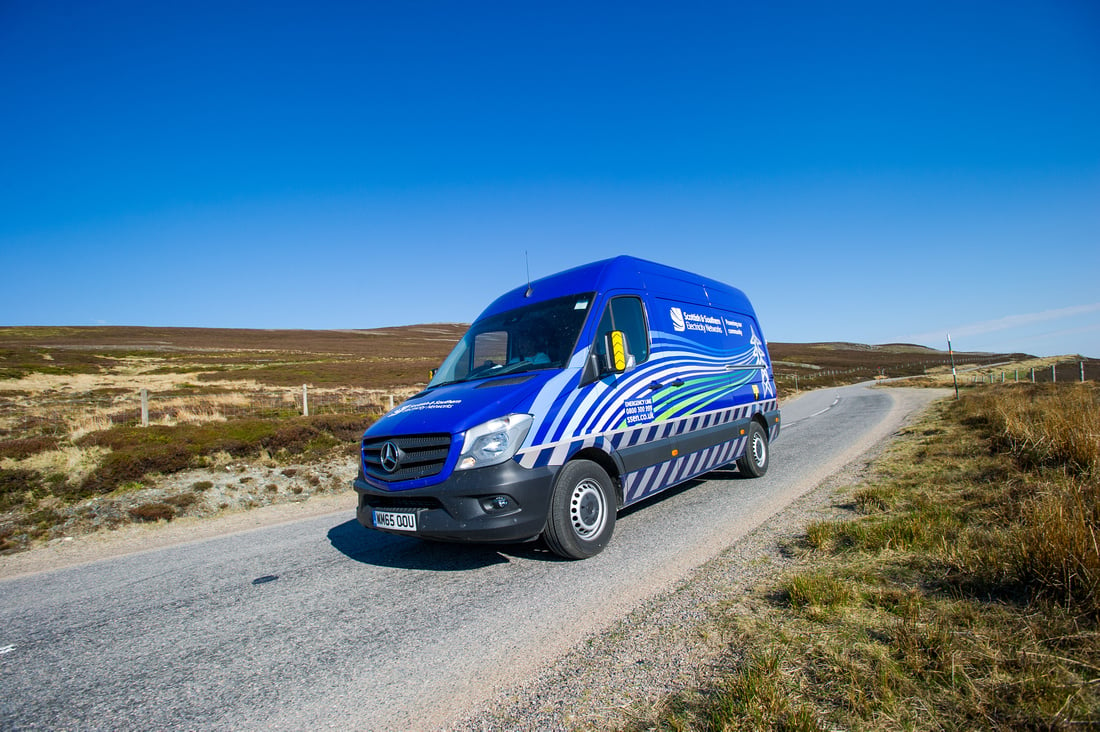As Scottish and Southern Electricity Networks (SSEN) Distribution sets out its plans for the future through its *RIIO-ED2 Business Plan, the distribution operator is showing commitment to enhancing services and providing even greater value for the customers and communities it serves.
It’s one of six clear goals developed by SSEN and built around its strategic outcomes, and through extensive engagement with customers and stakeholders across its distribution areas in central southern England and the north of Scotland. SSEN’s RIIO-ED2 draft business plan sets out how the company intends to run and operate its networks serving 3.8 million homes and businesses; enabling customers and communities to transition to net zero, while transforming its networks to meet the new and rising electricity demands of the future.
By 2028, SSEN has committed to providing free assistance for some 200,000 customers affected by fuel poverty, through targeted support and energy efficiency measures. In addition, SSEN has pledged to increase registrations to one million for its Priority Services Register (PSR), which helps vulnerable customers in the event of power cuts or severe weather events.
To do this efficiently and effectively, the identification of key areas where customers require extra support will be underpinned by the smart use of data. Designed by SSEN’s partner, the Centre for Sustainable Energy (CSE), the industry-leading Customer Mapping Tool (CMT) is a key data tool used by SSEN to aid strategic decision-making, resilience planning, targeting of programmes, investment, and engagement.
The CMT brings over 36 sets of publicly available data into one system; some of which have been identified through discussions with SSEN, feedback from Dundee University of Social Sciences and engagement with stakeholders.
Examples of potential areas of vulnerability identified by CMT include:
- Lone pensioners
- Fuel-poor households
- Dwellings without mains gas connection
- Proximity to services;
- and health and income data.
The data is reviewed and refreshed regularly to ensure findings are up-to-date and can also be used to identify geographic areas in SSEN’s regions where customers may be more likely to face challenging circumstances.
Head of Stakeholder Engagement for SSEN Distribution, Lyndsey Stainton said:
“SSEN is clear on its focus to put customers at the front and centre of its plans, both for today and for the years ahead. The cost of living crisis, severe weather events and meeting the UK’s net zero targets mean that identifying those customers who need additional support is more important than ever before.
“By using our Customer Mapping Tool (CMT) and layering the data, we are able to identify a more nuanced analysis of ‘vulnerability’, where customers might be experiencing multiple and overlapping difficulties with health, disability, age, or financial capability.”
Lyndsey continued:
“The specifically developed system is also extremely useful for planning resilience support during a power cut or a planned supply interruptions, where essential works are being carried out; enabling us to strategically promote our Priority Services Register and identify any gaps in uptake that need to be addressed.
“Additionally, we’re using the Customer Mapping Tool’s indicators to identify key areas of concern - helping us to maximise our strategic prioritisation in the development of our fuel poverty initiatives, partnership planning and recruitment.”
SSEN’s Customer Mapping Tool helps the distribution operator to provide a more accurate understanding of how changing situations create different kinds of vulnerability, so that appropriate support can be given and those customers most in need can be prioritised.
If you, a family member or a friend could benefit from any of the free, additional assistance available through SSEN, please go to Priority services - SSEN to find out more.

